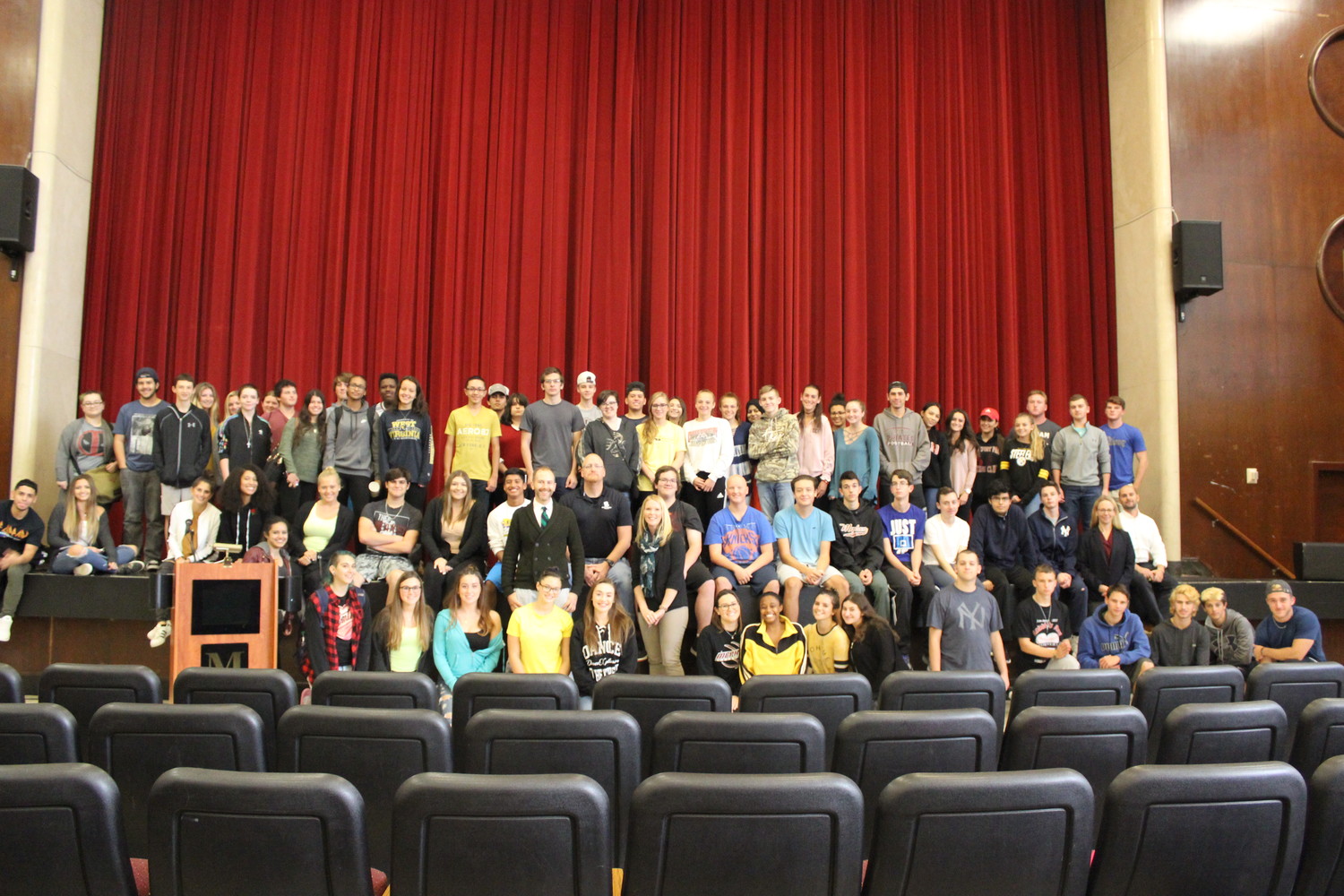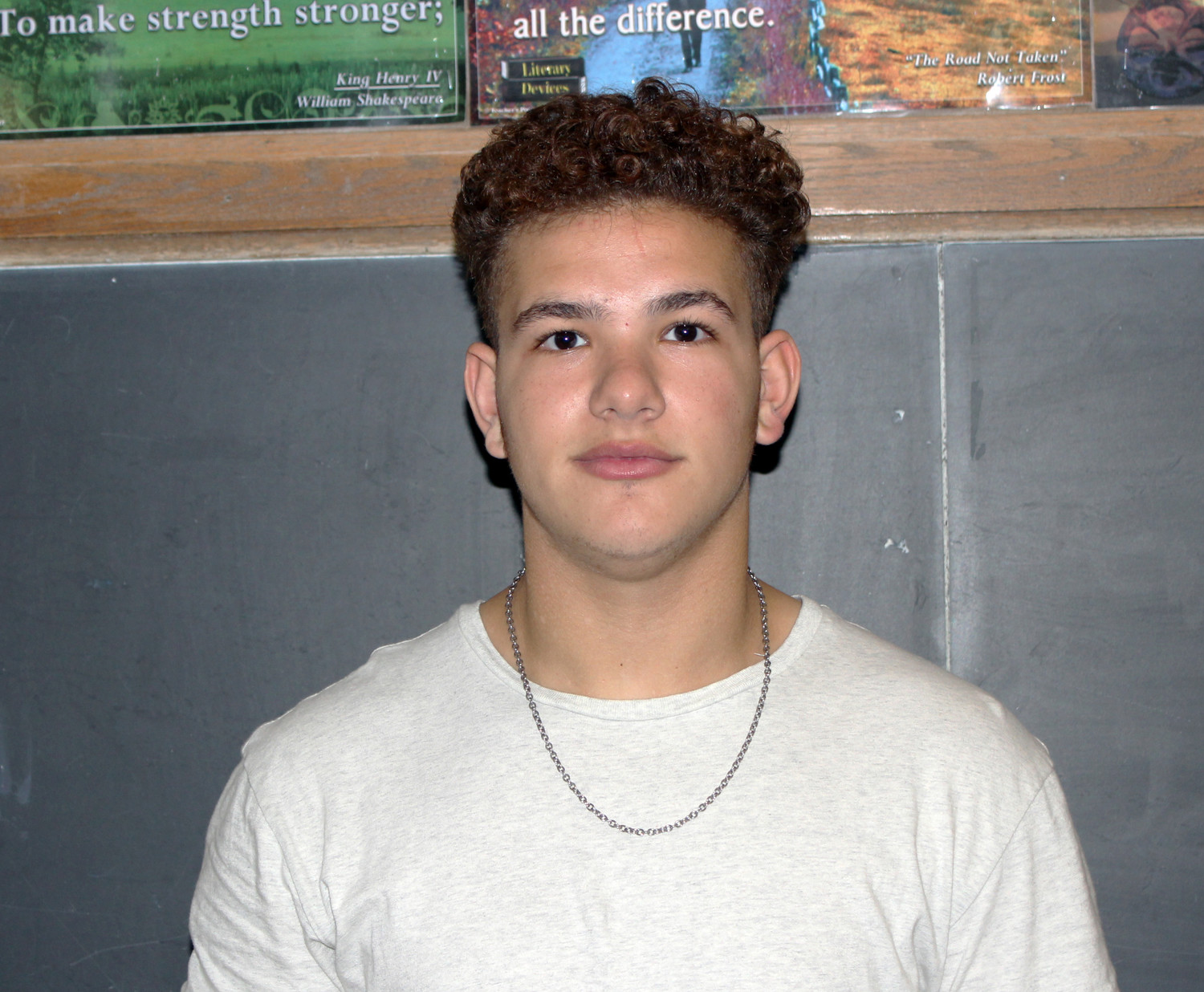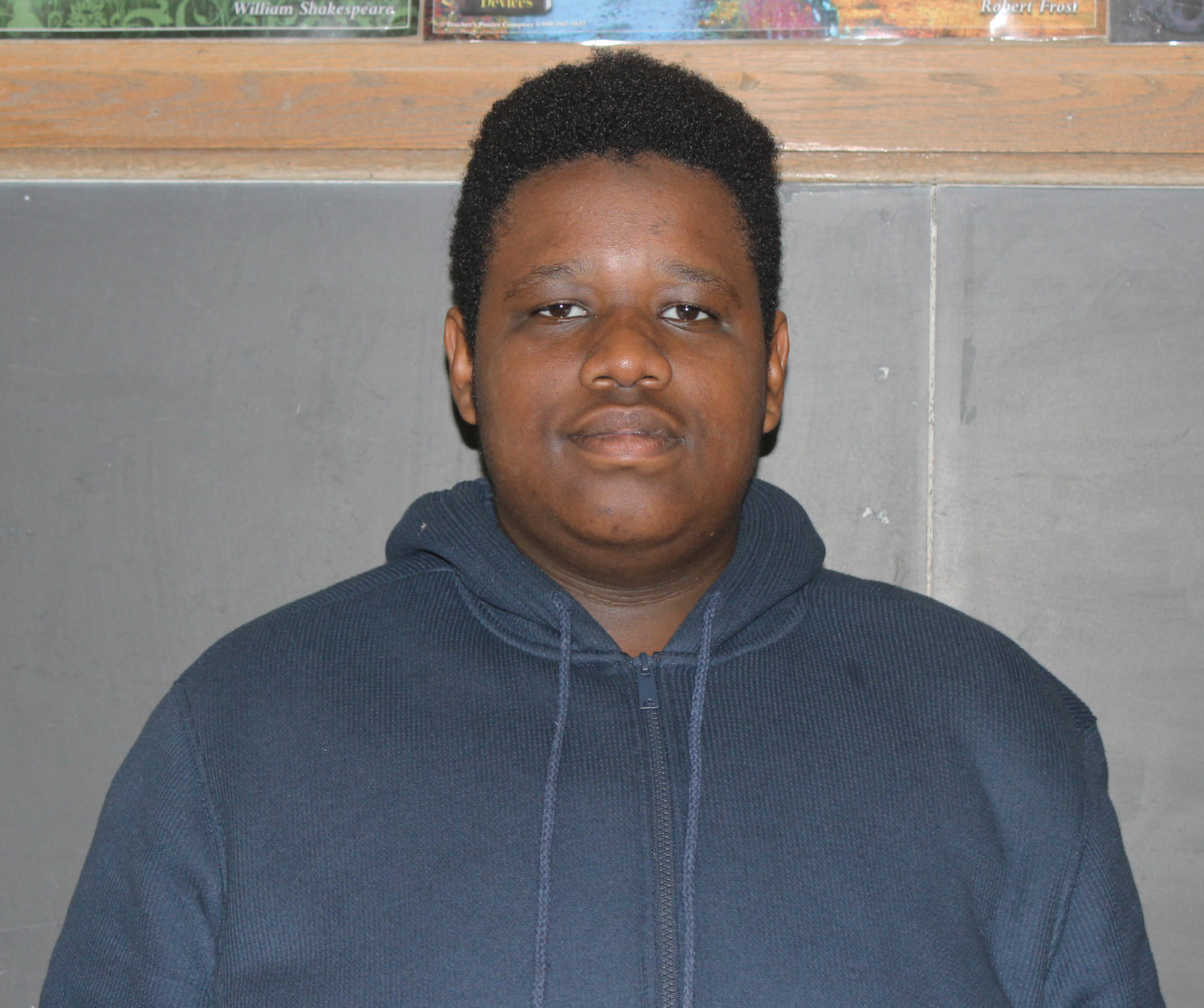The things they’ll carry
Mepham students will follow Wounded Warrior’s example
Dan Miller served in the Iraq War with a World’s Best Dad keychain, given to him by his son Steven, taped to the back of his chest plate. He kept a Saint Christopher medal inside his helmet, and he slipped a picture of a heart, drawn by his daughter Hailey-Anne, in his shoulder pocket. Miller kept these totems in his uniform throughout his 29-year career in the U.S. Marine Corps.
Miller, 48, of Joliet, Ill., is now a speaker for the Wounded Warrior Project. He shared his war stories with the Mepham High School junior English and Senior Experiences classes on Oct. 25, following the students’ lesson on the Tim O’Brien novel “The Things They Carried.”
“We’ve wanted to make our literature come to life and put a face on it,” said Edward Grosskreuz, a Mepham English teacher who helped organize the event.
“They shared the weight of memory,” O’Brien wrote in his fictionalized memoir of the Vietnam War. He described how each soldier carried not only an object that held sentimental value, but the emotional weight of his experiences. Miller was no different.
“We’re taught to hold our emotions in,” he said, adding that, if he had breached his stoic mentality, it would have only slowed him and his fellow Marines down.
When he returned from war, he recalled, he suffered from bouts of depression, and once woke up in the corner of his bedroom with an assault rifle in his arms. Another night, he awoke atop his then wife, Julie, with both hands around her neck. Miller learned that he had been suffering from post-traumatic stress disorder only when he got involved in the Wounded Warrior Project three years ago. The organization gave him an outlet for unpacking the memories he had once repressed.
In 2004, Miller, then a gunnery sergeant, was reprimanding one of his men when a rocket screamed past his head. Instantly his senses were dulled, and he could only hear the faint sound of his comrade screaming for his mother. Miller looked down to see that the solder’s leg was split open and his fingers were gone.
Four years later, Miller, now a first sergeant, was combing the streets of Fallujah, Iraq, in search of improvised explosive devices planted there by enemy combatants. After one detonated not far from him, he was rushed to a hospital and treated for a compressed skull and a shattered tailbone. When doctors urged him to stay overnight, Miller went outside for a “cigarette break,” although he doesn’t smoke, and hitchhiked back to his base to rejoin his men.
“What shocked me is when he got injured … he felt that he was a leader and he couldn’t leave his men behind,” said Fabien Hussey, a Mepham junior who hopes to serve in the Navy.
Hussey said that Miller’s presentation, and O’Brien’s novel, both affirmed the emotional toll war can take on a soldier, but added that he is willing to face whatever may come his way if he joins the Navy. “I’m ready,” he said. “I know I have my family to back me.”
Joseph Malone and Rudy Figuery, both juniors who intend to join the Marine Corps, shared those sentiments. “Everyone in my family tried to deter me from joining,” Figuery said. “They don’t want me to lose my life. They don’t want me to get hurt. I just want to defend my country — it’s what you’re supposed to do.”
Malone said that his mother didn’t want him to join the Marines. “She doesn’t think I could kill anybody, because she says I’m pure of heart,” he said. “I just want to push myself. I don’t want to live knowing I didn’t serve my country.”
Malone added that if he served, he would take with him the cross necklace and prayer bracelet he was wearing as he spoke with the Herald.
Hussey said that he would take a ring that is engraved with a cross, a family photo — “so I know what I’m fighting for,” he said — and a keychain that says, “Think happy, be happy.”
Figuery said he would take a photo of his mother, who died when he was 5, and another of his little sister.
In 2014, Miller, then an officer with the Chicago Police Department, sat in his car, holding a gun to his head. As he fought the urge to pull the trigger, he said, he remembered an encounter with a veteran named Shane Parson who had both legs amputated, but was getting married, adopting a child and was active with Wounded Warriors. Recalling this, Miller said, he made one of the hardest decisions in his life. “I went home,” he said, “and I asked for help.”
After Miller’s presentation, Malone asked him what advice he would give a student wishing to join the military. He said to know what you’re getting into, adding, “All you have to do is be a good citizen for yourself, your family, your god and your country.”

 55.0°,
Overcast
55.0°,
Overcast 












